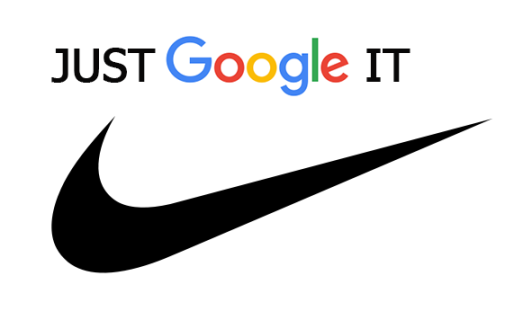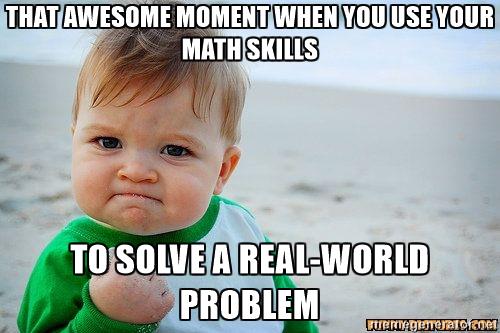One of the great things about technology, I think, is that it provides us with an unlimited access to knowledge—we can find information on almost anything and everything in a matter of seconds by doing a quick Google search. What is antimatter? Google it. How does the moon affect the ocean? Google it. Why are women underrepresented in science? Google it.

Photo Credit: Milena Dimitrova
These are some of my recent Google searches. Some of them are school related, some of them were out of my own pure curiosity. My point is, all of this content and more is readily available at our fingertips, which I think is pretty neat.
When it comes to education, however, this unrestricted access to information has raised some questions about the way that students learn and the way that teachers teach. In our ECMP 455 class this week, we discussed the powers and perils of technology in regards to education. One of the questions that was brought up was: With content being so readily available, is there a point in teaching something that students can Google?
I think the ‘correct’ answer would be to say no, we shouldn’t be teaching content that can be Googled because it prevents students from being independent, critical thinkers—Google is an easy way out of having to think for yourself. However, I have thought a lot about this question over the past week, and I think that the argument is a little more complex than that. I realize that my opinion may be unpopular, but yes, I believe that there is a point in teaching content that can be Googled. Now, before I go any further, I want to clarify: I believe that Google has definitely changed the way that students think and learn, and not necessarily for the better. Terry Heick from TeachThought has written a lot about this topic, and he makes some excellent points in this article. I believe that teachers have some added responsibilities in teaching students in this Google generation, which I will get to later. I am simply arguing that there is some legitimacy in teaching content that can be Googled.
Literally everything is Google-able. In this sense, to say that we shouldn’t be teaching content that can be found on Google is to say that we should be removing every single subject from the curriculum, and I have an issue with that. For one, just because information is available online does not mean that students will have the drive to access and explore it on their own. In fact, students may not even know that the content exists. I wouldn’t have become a chemistry teacher if I wasn’t exposed to the subject in high school—that’s where I discovered my passion for science. Sure, pretty much everything that I learned in my 20 and 30-level chemistry classes is Google-able, but I wouldn’t have sought out that information on my own, or gone on to pursue it in post-secondary, if it wasn’t taught to me.
Furthermore, if it is left up to us to choose what to Google and what to learn about then we might miss out on valuable information and skills. For instance, my least favourite subject in school was Practical and Applied Arts. Would I have researched the content on my own? No way. But did I learn valuable skills and information in my PAA class? Yes way. In the home economics rotations of my PAA class, I learned how to budget—a skill that has clearly come in handy as the whole point of my Learning Project has been to learn how to make cost-effective meals. I think this goes for any subject. For example, a student might not be interested in math, but is math still an important and valuable subject to learn about? Of course. Math helps us to explain the physical world around us, and math skills are vital to our everyday lives for even the most basic of tasks such as cooking and baking, banking and financial planning, etc.

Photo Credit: Meme Generator
Another reason why I think that we need to teach content that can be Googled is because you can’t trust everything that you read on Google. I recently read an article that discussed how Google has affected the way that students learn. One of the points that is brought up in the article is that Google gives students a false sense of security—that is, students think that they understand something fully because they Googled it. I think this is all the more reason to teach content that can be Googled, so that we can provide students with accurate, reliable information. I think this is especially important in this era of fake news we are living in where websites are deliberately publishing disinformation to try and mislead readers, often for financial or political gain. If we don’t expose students to Google-able content, then I think we run the risk of students obtaining inaccurate or false information and taking it as fact.

Photo Credit: Akane Joseph
So, how do we go about teaching students in this Google generation? With an unlimited access to information available right at their fingertips, students may not be motivated to participate in school—they may rely on Google to teach them the content later, using the internet as crutch. I think this puts an added responsibility on teachers to provide students with a level of learning that Google does not offer. This means creating and facilitating engaging lessons that foster vital life skills such as creativity, imagination, and critical thinking.
In addition, I think teachers also have a responsibility to develop info literacy skills in their students. A recent study from Stanford shows that students have a dismaying ability to assess the quality of information online—they can’t distinguish real news from fake news. Part of our job then becomes to teach students how to be critical consumers of news, information, and media and how to evaluate its legitimacy. My classmate Alex shared with me this neat resource that students can use to critically analyze the validity of websites on Google. This is one place to start. I also found this short TED-Ed video that describes how fake news spreads, which is another useful resource to share with students:
“But our desire for quick answers may overpower the desire to be certain of their validity. And when this bias can be multiplied by billions of people around the world almost instantaneously, more caution is in order.” – Noah Tavlin
To end off, I’d like to make one more point—perhaps the most important point of this whole blog post. In a way, I feel as though this debate about whether we should teach content that can be Googled is offensive to teachers, as it suggests that teachers are nothing more than deliverers of content. I like to think that my role as a teacher is more complex and more important than that, and I hope that society, and my students, view my role differently, too.
This was a wonderful blog post Amy. Your blog posts are always filled with insightful thoughts and ideas that I would have never thought of, and for that I thank you. I like that you’re expressing your views even if not everyone agrees with you. First of all, I chuckled at every picture you put in your post, especially the math one (because math is a beautiful subject and can be seen everywhere in the world from art to nature). “We run the risk of students obtaining inaccurate or false information and taking it as fact.” I haven’t thought of that a lot but you’re absolutely right. If students see something on Google, they would probably assume it is correct information and won’t bother to verify it with another source. I can see both sides of the argument.
I feel like I’m on the fence. I understand that some people say that curriculum should change a bit to adapt to technology and I agree with that to a certain extent. I also see your side though based on all the points you’ve given. Everyone in this class has given me a lot to think about with Google and education! I think everyone will always have different opinions on this subject and that’s perfectly okay but we need to make sure we see both sides of the coin! Thanks again for a great blog post.
LikeLiked by 1 person
Hi Carmelle,
I’m glad my blog post was able to expose you to new ideas and ways of thinking. I totally agree with you that curriculum should change to adapt to this age of technology. As I mentioned in my post, I definitely believe that Google has changed the way that students think and learn — and not necessarily for the better. I just think there is more to the argument than “we shouldn’t teach content that can be Googled.”
Thanks for your comment! 🙂
LikeLike
Hey Amy,
I agree with your sentiment about teachers being more than deliverers of content. As a learner, I recall many nights of trying to teach myself a concept from a lecture I missed, and the results of that learning are almost always inferior as to what is gleaned from class time (particularly in Math). Reading about Eileen Pollack and the challenges she faced in teaching herself, even though she eventually achieved great success, also seems to affirm our belief that even though everything “can” be googled and learned, our best learning comes from collaboration and under some guidance.
Do you have any ideas as to how we can use educational technology to help students catch up when they miss class? Google is an OK start, but as we see, its effectiveness is contestable.
Thanks.
LikeLiked by 1 person
Hi Matthew,
That’s a great question. I strongly believe in making education accessible to students outside of the classroom. Sometimes, I think we treat education as this teacher-held secret that students can only acquire if they are in class to write it all down — as if learning can’t take place outside the four walls of a classroom. But, if there is anything that I learned during my internship it’s that some kids have a lot going on in their lives and sometimes my science class isn’t their priority. I get that, and I don’t think that a student’s education should have to suffer because of that.
This is where I think LMS platforms like Google Classroom, Edmodo, and Canvas can be extremely beneficial. I didn’t use an LMS platform during my internship, but I did set up a Google Calendar for my Physical Science 20 class — they class that I taught all semester. At the end of every class, I would upload any notes/class work directly from my SMART Board to the Google Calendar, along with any handouts or assignments, in order to make the course content available to my students outside of the class. I found this really handy, and my students appreciated being able to access the class content on their own time.
I hope this answers your question. Thanks for your comment!
LikeLiked by 1 person